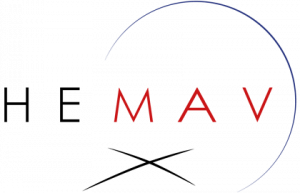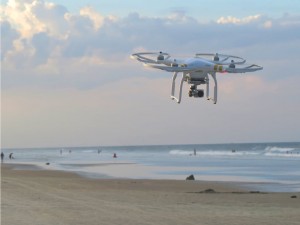As you may have seen in the headlines the last few days, a Barcelona startup HEMAV closed a €3M funding round led by Scranton Enterprises from Amsterdam. HEMAV is a drone startup from Spain, but let’s take a closer look at what this team of engineers and innovators have built: What is HEMAV exactly, how did it start, where is it headed and what does it mean for Barcelona’s rising tech sector?
What is HEMAV?
 HEMAV is a Barcelona startup that developed into the leading drone service provider in Spain. Situated in the incubator of the European Space Agency within the UPC campus in Castelldefels, it’s particularly well-positioned in the fields of precision agriculture, industrial inspection and geomatics. HEMAV aims to develop, innovate, and commercialize UAV (Unmanned Aerial Vehicle) technology in order to offer integral solutions for civil UAV applications.
HEMAV is a Barcelona startup that developed into the leading drone service provider in Spain. Situated in the incubator of the European Space Agency within the UPC campus in Castelldefels, it’s particularly well-positioned in the fields of precision agriculture, industrial inspection and geomatics. HEMAV aims to develop, innovate, and commercialize UAV (Unmanned Aerial Vehicle) technology in order to offer integral solutions for civil UAV applications.
How did it start?
HEMAV has a quite cool startup story. Its origins can be dated as far back as 2011, when two aeronautic engineering students of Polytechnic University of Catalonia, Xavier Silva and Carlos Ferraz, were completing their final project at university and simply wanted to build “something that can fly”. After laying out the main plan, they started to look for collaborators for developing their idea and in the end more than 20 people participated in their project. In 2012, the company was officially launched and two years later, in 2014, it reached one of its first major milestones when it raised €450k via the crowdfunding platform Crowdcube España.
Where will it go from here?
Since then, the Barcelona startup continued to develop its technology and business and, led by Alex Gomar, it attracted big clients such as Gas Natural, Telefónica or IBM. Currently, its success culminated with a big windfall through the €3M investment round that puts HEMAV in a great position to grow its business.
According to the press release, the Catalan firm vows to use the funds for its internationalization strategy for which it’s looking to create a scalable business model. Certainly, after having conquered the Spanish market, boasting big name clients and having loaded up their bank accounts, the Spanish startup is ready to go abroad and expand. Another part of the investment will go into the creation of LAYERS, a digital platform that will serve for the development of a new RaaS business model, Reporting as a Service. This will provide the company’s clients with an easy, digital and collaborative access to information gathered through its Drones or any other UAV offered by the firm.
What does it mean for Barcelona’s startup ecosystem?
At the same time, the recent investment is also good news for Barcelona’s entrepreneurship ecosystem and, particularly, for the Catalan capital’s big aspirations of becoming the World’s Drone City, similar to the successful World Mobile Capital brand that has been established over the past years. In fact, the “Drone  environment” in Barcelona is making rapid progress and looks promising: The Catalan capital already boasts the BCN Drone Center, a hub for testing the devices, as well as an own Drone racing track that hopes to launch international races in the near future. Additionally, just a few months ago Reimagine Drone, Barcelona’s first drone incubator, has been launched and just last month the Catalonia Smart Drone Conference has brought together leading experts in the field to discuss the technology, its implication and its future.
environment” in Barcelona is making rapid progress and looks promising: The Catalan capital already boasts the BCN Drone Center, a hub for testing the devices, as well as an own Drone racing track that hopes to launch international races in the near future. Additionally, just a few months ago Reimagine Drone, Barcelona’s first drone incubator, has been launched and just last month the Catalonia Smart Drone Conference has brought together leading experts in the field to discuss the technology, its implication and its future.
With the international market for drones estimated to grow from €2B today to €127B by 2020, it’s easy to see why competition in the drone market is already heating up with more and more new startups popping up in the hope of cashing in on the new technology that becomes cheaper to produce and apply. Of course, a lot of these firms will disappear other the next couple of years, but companies that manage to find the right niche and business model, will be the long-term winners. Of course, creating a cluster and ecosystem for drone technology in Barcelona would go a long way in reinforcing the city’s position as a leading entrepreneurship hub and ensuring the jobs and innovation of the future are being created here. So far we’re on the right track and HEMAV’s success might be a catalyst for attracting more innovation and investment into the Barcelona drone community.







What would expect the future of DRONES. Things changes lot form past technology is growing there are many benefits but need to take care also about the security of these air flying objects.